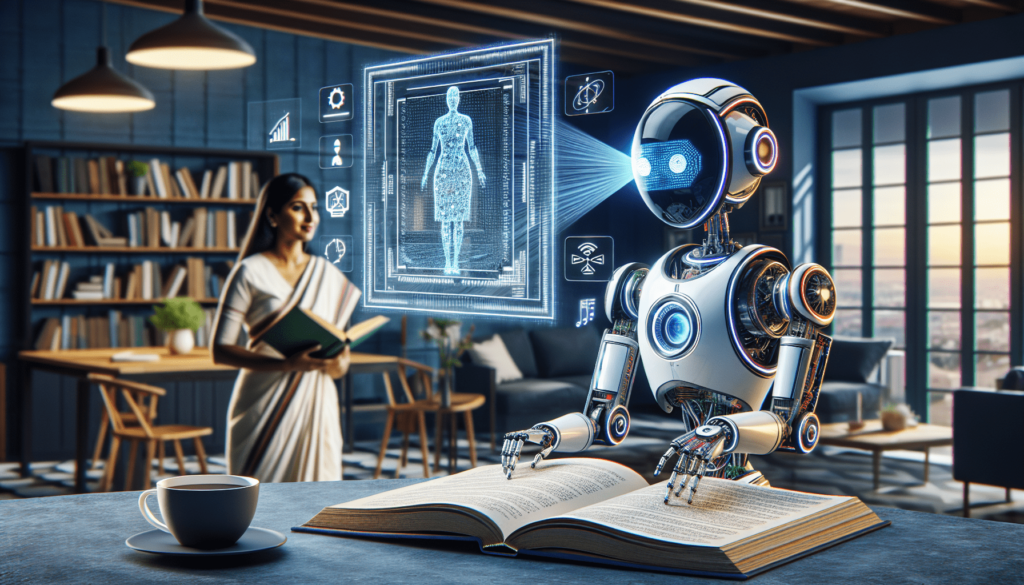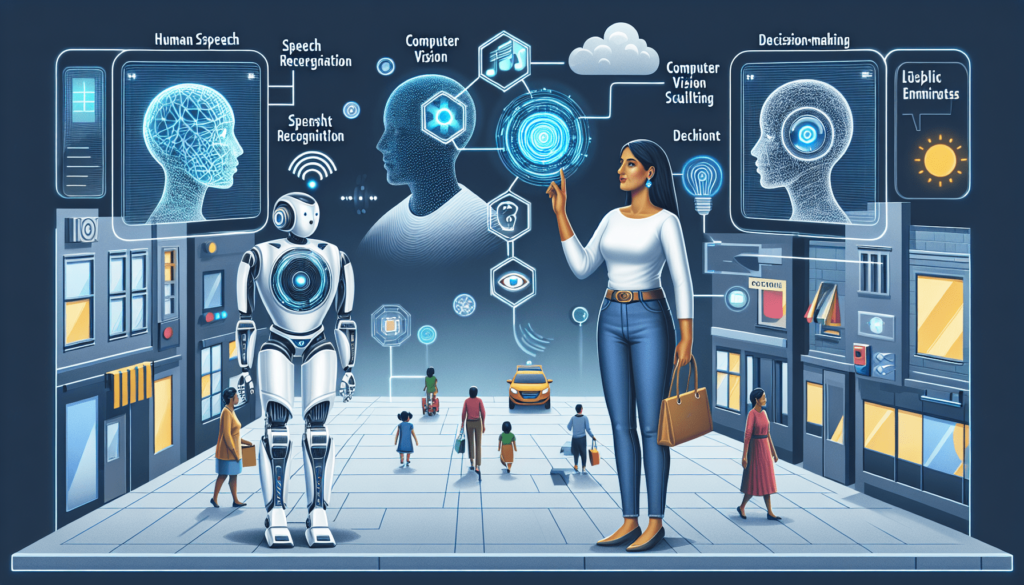What is AI with real-time example?
Artificial Intelligence (AI) refers to the simulation of human intelligence processes by machines, such as learning, reasoning, and self-correction. A real-time example of AI in action is facial recognition technology, which is used in various applications such as unlocking smartphones with Face ID. In this article, we will delve deep into the world of AI and explore how it is being applied in real-time applications in our daily lives.

The Basics of Artificial Intelligence
Let’s start by understanding the basics of Artificial Intelligence. AI is a branch of computer science that focuses on creating intelligent machines that can perform tasks that typically require human intelligence. These tasks include speech recognition, decision-making, visual perception, and language translation.
How Does AI Work?
AI systems work by processing large amounts of data and using algorithms to analyze patterns, make predictions, and learn from experience. Machine learning, a subset of AI, allows machines to learn from data without being explicitly programmed. Deep learning, another subset of AI, involves artificial neural networks that mimic the way the human brain works.
AI systems are trained using labeled data, which is input data that has been tagged with the correct output. As the system processes more data, it can improve its accuracy and make better predictions.
Real-time Applications of Artificial Intelligence
Now, let’s explore some real-time applications of Artificial Intelligence that are reshaping various industries and improving efficiency.
1. Virtual Assistants
Virtual assistants, such as Amazon’s Alexa, Apple’s Siri, and Google Assistant, are AI-powered tools that can provide users with information, set reminders, and control smart devices through voice commands. These virtual assistants use natural language processing (NLP) to understand human speech and respond accordingly.
2. Autonomous Vehicles
Autonomous vehicles, also known as self-driving cars, use AI algorithms to navigate roads, detect obstacles, and make decisions in real-time. Companies like Tesla, Google, and Uber are investing heavily in this technology to make transportation safer and more efficient.
3. Healthcare
AI is revolutionizing the healthcare industry by enabling faster and more accurate diagnosis of diseases, personalized treatment plans, and predictive analytics for patient outcomes. AI-powered tools can analyze medical images, predict patient deterioration, and even assist in surgical procedures.
4. E-commerce
E-commerce platforms use AI to provide personalized product recommendations, optimize pricing strategies, and improve the overall shopping experience for customers. AI algorithms analyze user behavior and preferences to offer targeted promotions and enhance customer engagement.
5. Fraud Detection
Banks and financial institutions use AI for fraud detection and prevention by analyzing transaction data in real-time to identify suspicious patterns and anomalies. AI algorithms can detect fraudulent activities and alert authorities before any harm is done.
Ethical Considerations in Artificial Intelligence
While AI offers numerous benefits and opportunities, it also raises ethical concerns and challenges that need to be addressed to ensure responsible development and deployment of AI technologies.
Privacy and Data Security
AI systems rely on vast amounts of data to operate effectively, raising concerns about data privacy and security. Companies must ensure that user data is handled responsibly and protected from unauthorized access or misuse.
Bias and Fairness
AI algorithms can unintentionally perpetuate biases present in the data used for training, leading to discriminatory outcomes in decision-making processes. It is essential to mitigate bias and ensure fairness in AI systems to promote inclusivity and diversity.
Accountability and Transparency
As AI systems become more autonomous and sophisticated, it becomes challenging to understand how they reach decisions and hold them accountable for their actions. Transparency and explainability are crucial to building trust in AI technologies and ensuring accountability for their outcomes.
The Future of Artificial Intelligence
The future of Artificial Intelligence holds endless possibilities and innovations that have the potential to transform every aspect of our lives. As AI continues to advance, we can expect to see more intelligent machines, improved automation, and enhanced decision-making capabilities in various industries.
AI will play a significant role in shaping the future of healthcare, transportation, finance, education, and many other sectors, revolutionizing the way we live, work, and interact with technology. It is crucial to embrace AI responsibly and ethically, considering its impact on society and ensuring that it benefits humanity as a whole.
In conclusion, Artificial Intelligence is a powerful technology that is reshaping our world and driving innovation across industries. By understanding its basic principles, exploring real-time applications, and addressing ethical considerations, we can harness the full potential of AI and create a better future for generations to come. Remember, the key to unlocking the true power of AI lies in responsible development, transparent deployment, and ethical use of this groundbreaking technology.

